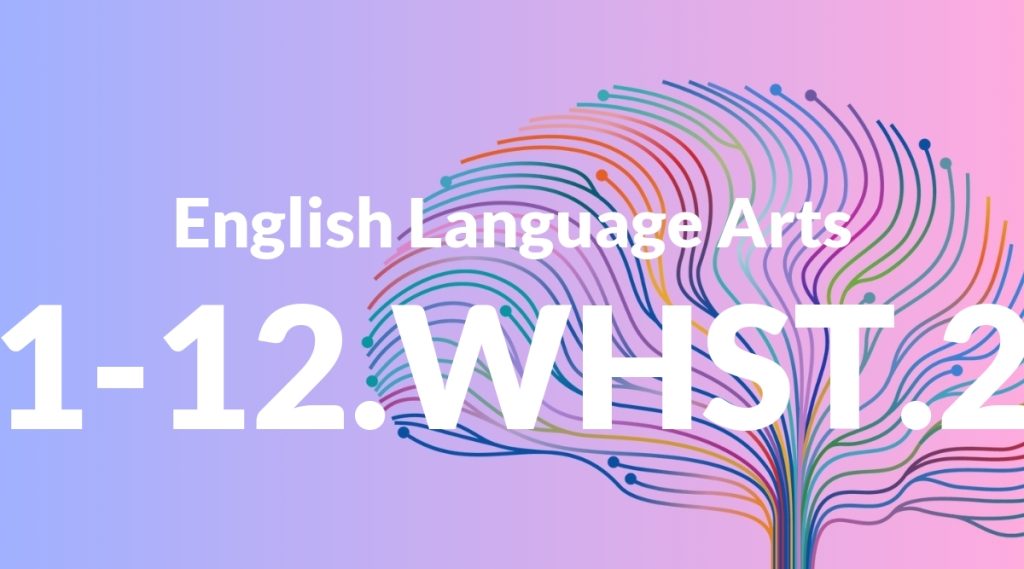Standard: 11-12.WHST.2d – Use precise language, domain-specific vocabulary and techniques such as metaphor, simile, and analogy to manage the complexity of the topic; convey a knowledgeable stance in a style that responds to the discipline and context as well as to the expertise of likely readers.
Grade level: Grade 11-12
Subject: English Language Arts
Domain: Writing: History, Science & Technical Subjects
Teacher Overview
This standard emphasizes the importance of using precise language and domain-specific vocabulary to effectively communicate complex ideas. It encourages students to use literary techniques such as metaphor, simile, and analogy to enhance their writing and engage their audience. Mastery of this standard is crucial for students as it prepares them for advanced writing tasks in various disciplines. Students should already be comfortable with basic writing skills and familiar with using literary devices like metaphors and similes. They should also understand the importance of tailoring their writing to their audience.
By mastering this standard, students will be able to produce high-quality, discipline-specific texts that demonstrate advanced writing techniques and a deep understanding of their subject matter. This skill is essential for success in higher education and professional careers.
Common Misconception 1
Some students might think that more complex language makes their writing better. However, overly complex language can obscure meaning and confuse readers. It’s important for students to understand that clarity and appropriateness are more important than complexity.
Intervention 1
Encourage students to focus on clear, straightforward language and to consider their audience when choosing their words. Provide examples of effective writing that uses simple but precise language.
Common Misconception 2
Another common misconception is that literary devices are only useful in creative writing. In reality, techniques like metaphors, similes, and analogies are valuable tools in technical and scientific writing as well, helping to explain complex ideas in a more relatable way.
Intervention 2
Show students examples from scientific and technical texts where literary devices are used effectively. Have them practice incorporating these techniques into their own writing to clarify complex concepts.
Prerequisite Knowledge
Students should have a foundational understanding of basic writing techniques, including the use of clear and concise language, and the ability to identify and use literary devices such as metaphors and similes.
Subsequent Knowledge
After mastering this standard, students will be able to produce sophisticated, discipline-specific texts that demonstrate advanced writing techniques and a deep understanding of the subject matter.
Instructional Activities
- Analyze and discuss examples of effective writing in history, science, and technical subjects.
- Practice writing paragraphs using precise language and domain-specific vocabulary.
- Create analogies, metaphors, and similes to explain complex topics.
- Peer review and provide feedback on each other’s writing.
- Rewrite a complex passage using clearer and more precise language.




